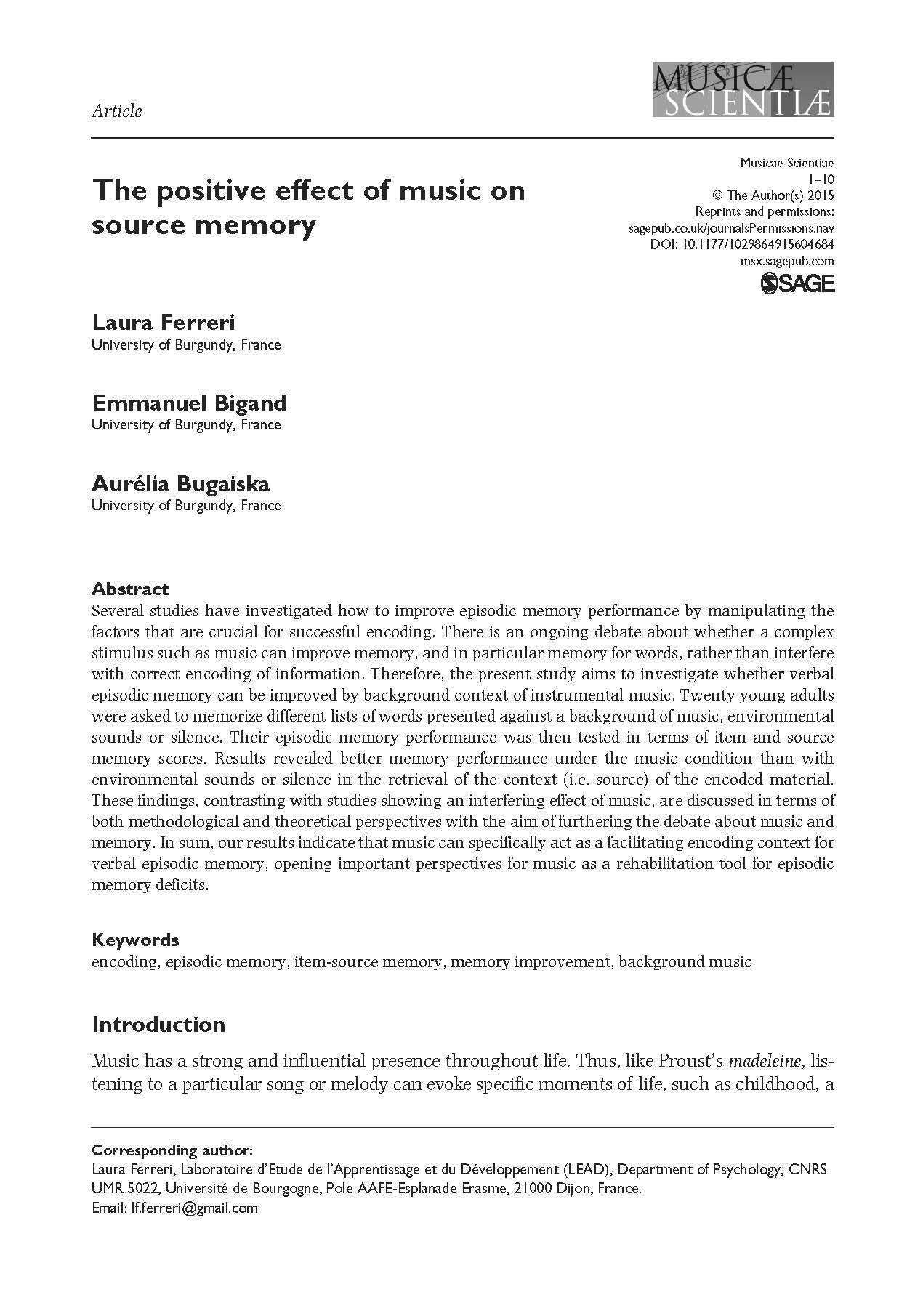Several studies have investigated how to improve episodic memory performance by manipulating the
factors that are crucial for successful encoding. There is an ongoing debate about whether a complex
stimulus such as music can improve memory, and in particular memory for words, rather than interfere
with correct encoding of information. Therefore, the present study aims to investigate whether verbal
episodic memory can be improved by background context of instrumental music. Twenty young adults
were asked to memorize different lists of words presented against a background of music, environmental sounds or silence. Their episodic memory performance was then tested in terms of item and source memory scores. Results revealed better memory performance under the music condition than with environmental sounds or silence in the retrieval of the context (i.e. source) of the encoded material. These findings, contrasting with studies showing an interfering effect of music, are discussed in terms of both methodological and theoretical perspectives with the aim of furthering the debate about music and memory. In sum, our results indicate that music can specifically act as a facilitating encoding context for verbal episodic memory, opening important perspectives for music as a rehabilitation tool for episodic memory deficits.
The positive effect of music on source memory
